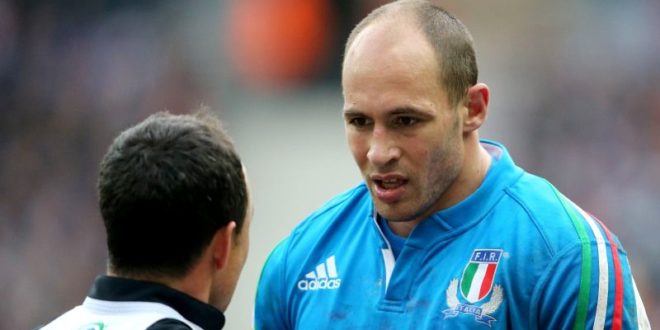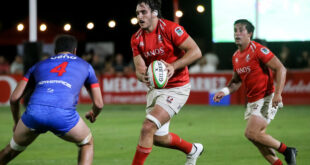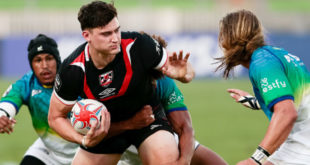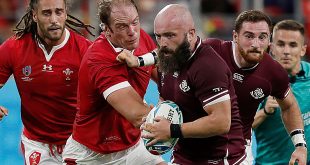World Rugby deserve questioning over Anglo monopolized refereeing. In response to the past weekend’s Six Nations fixtures social media was alive with people opposed to monolingual officiating.
Played on Saturday and Sunday, the opening round of the 2017 Six Nations Championship featured referees from the Top 14, Super Rugby and Aviva Premiership competitions.
In game one Scotland played at home against Ireland. The referee was France’s Romain Poite. It was followed by England vs France, refereed by Angus Gardner. On Sunday JP Doyle took charge of Italy vs Wales.
The difference in officiating was extraordinary. Poite went out of his way to use accurate English. He avoided the use of French altogether, doing so under World Rugby protocol. It made sense as the two teams playing speak English as, crucially, do their captains Rory Best and Greig Laidlaw.
Gardner was in charge several hours later. The Australian made no effort whatsoever to use French. All calls were entirely performed in the English language. Captain Dylan Hartley had a far easier time in understanding and communicating with Gardner than did Guilhem Guirado.
On Sunday it was altogether similar. A different match and a different referee with JP Doyle taking charge of a test match in Rome, Italy. Having been a referee in England since 2003 the Irishman is extremely experienced. Yet, like Gardner, his communicating with the two teams was world’s apart. All calls were entirely made in English with players often visibly confused.
Italy’s captain, Sergio Parisse, is multilingual. From Argentina with Italian parents he spoke fluent Spanish and Italian before beginning professional rugby. After four years playing in Italy he moved to Stade Français in 2005 where he continues to play. Parisse’s English, in other words, is fourth in terms of effectiveness. The Top 14 is refereed in French.
World Rugby’s campaign to clean up rugby, in which the referee must be fully respected requires nothing short of communication excellence. In order for this to happen top officials it is paramount that officials know rugby commands and use them.
When communicating at the tackle area, ruck, scrum, maul, lineout an official needs to bed clear and understood. This was far from being the case under Gardner and Doyle. Argentina experience similar problems in the Rugby Championship. Captain Agustín Creevy requires a translator for post-match interviews yet officials talk one-on-one with him exclusively in English.
What is required is for referees to no longer tell an Italian ‘off your feet, hands away blue 11’ a Frenchman ‘roll away blue 7’ or an Argentine ‘ball was not out, penalty against blue 2’. World Rugby can do much better. This need not mean all referees have the level of French, Italian or Spanish as that of Poite’s English. It does, however, mean that calls during the game as warnings to individuals ought to be in the language.
The most frequent calls must be identified by World Rugby officials. Referees then need to be trained to use them. Doing so is far easier than most people appreciate. There are two Italian sides in the Pro 12, 14 French sides in the Top 14 and one Argentine side in Super Rugby. If Nigel Owens indeed is the word’s leading official then have him learn Italian calls and train in games involving Treviso or Zebre.
Nissan is a Japanese company and the offices are based in the country. Due to it being a worldwide enterprise it is a requirement that work is done entirely in English, this includes when all workers present are Japanese.
Anglo Monopolized Refereeing is not limited to the Six Nations or Tier 1 rugby. Three matches were played in the Americas this past weekend. Of the six teams three are Spanish speaking, one is Portuguese and two are English. All matches were officiated in English.
Unlike the Americas Rugby Championship in the South American Cup games are refereed in Spanish. It makes sense – Argentina, Chile and Uruguay are three of the four and Brazil’s language, Portuguese, has an 89% lexical similarity to Spanish. Portuguese and English share a 28% similarity. French and Italian are also 89% similar while French to English is 27%, just 1% more than English to Russian.
Having Gardner learn rugby commands in French and Doyle in Italian is a far easier task than a Japanese mastering English. Leading English official Wayne Barnes says English referees are learning French to improve their communication skills. This is a start but the real solution is getting them to referee in rival leagues, doing so in Italian, French and Spanish. There is still a long time before Japan 2019 to get this right.
 Americas Rugby News Rugby news from across the Americas!
Americas Rugby News Rugby news from across the Americas!




